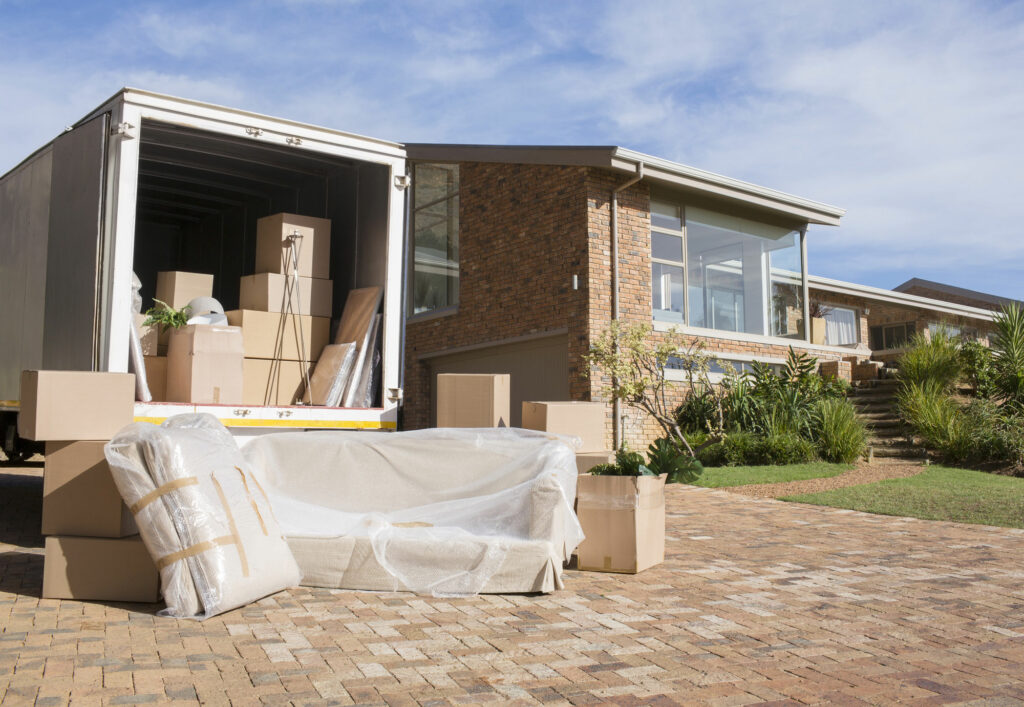
House moving can be a daunting and exhausting task. Other than moving your furniture and belongings from one house to another, many details need to be taken care of—from transferring utilities to coordinating logistics. Moreover, the emotional component of leaving a place you’ve known as your home can be challenging for everyone involved.
But moving houses doesn’t have to be an overwhelming experience. With proper planning and organization, you can make the house move successful. Before getting started, it is essential to plan how to move your family efficiently and comfortably. Here are some tips that will help you in this process:
The manageability of your family’s house move largely depends on the moving company you choose to work with. A good company will have experience in residential house moves and the right equipment and personnel to ensure your move is made correctly. Usually, good moving companies are in high demand; therefore, you should start your search several months in advance. That way, you can have enough time to compare different companies and pick the one that best suits your needs.
Some of the factors to look at include the services they offer, their insurance policies, and the feedback from other customers. Customer feedback is vital because it gives you a genuine insight into the quality of services and reliability of the mover.
Additionally, look at the locations where they operate. Working with a local mover is recommended, as they will be more familiar with the area and can provide you with better service. For example, if you’re moving around North Idaho, you can check on sites like https://www.thebigboymovers.com/locations/north-idaho/ and contact them about planning your move.
In addition to choosing the right mover, there are many other aspects of house moving that require ample preparation. Create an inventory list of all the items you plan to move and sort them into categories. When making a list of the items, you can sort them into different categories, such as fragile items, items to go in storage, and items to donate. That way, you can determine what you’ll take with you and what you won’t need anymore and can donate or discard.
You should also start packing up non-essential items several weeks before the move. This can help you minimize stress on a moving day since you’ll only need to worry about the essentials that you use daily. However, for any fragile items, you might prefer to have the moving company pack them.
Organizing the details of your move involves a lot of tasks and can be overwhelming. Create a timeline for tasks that need to be completed prior to moving to make things easier to manage. The timeline should start as early as two months before the move, listing all the necessary tasks until you’re ready to move.
You should also create a master list of contact information for people involved in your relocation, including friends, family, movers, and utility companies. This way, making follow-ups will be manageable. Moreover, it will ensure that everything is done within the established timeline, and you avoid last-minute rushes.

A change of environment is likely to affect your kids. Addressing their worries and preparing them for the move is essential. Be sure to answer their questions openly and honestly. You can also take this opportunity to explain why you’re relocating and how the move fits into your family’s life story.
Furthermore, you can talk about the fun things that await them in the new place and help them create a detailed plan for the move. It’ll make things more exciting for them, and they’ll be less likely to get anxious or overwhelmed. You can also visit the new home with them, let them choose their rooms, and start planning their spaces. The easier it is for the kids, the easier it will be for everybody else to adapt to the new home.
Moving houses will likely mean your kids will transfer to a new school. You’ll need to arrange all their school records, such as transcripts and test scores, for the transfer. Contact the original school to ensure your kids’ academic progress is recorded accurately and all documents are ready for transfer before you move.
Secondly, contact the school your kids will attend and arrange the enrollment process. Check with the school’s policies on the required documents before they can enroll your kids and get all the required documents or negotiate for more time. Doing this ahead of time will ensure that your kids take advantage of classes because documentation isn’t ready.
You should not forget to update your address. You must inform all relevant parties of your new address, such as banks, insurance companies, subscription services, and government offices. Planning this early is best so that all critical correspondence is sent to your new residence.
Remember to pay a visit to your neighbors and let them know that you’re leaving. Not only will this be a great way of saying goodbye, but it also gives you a chance to thank them for all the help they have given you throughout your stay in the neighborhood.
Even though you may be focused on making new friends, it’s good etiquette to inform your neighbors early enough. Seeing you move will disappoint them, so spending time with them before moving is advised.
When you’ve completed all the steps listed above, it’s time to move. Pack your household items, board them securely, and drive to your new home. Remember to double-check everything before leaving your old house.
Planning and executing a house move for your family can be intimidating, but being organized, taking time to prepare, and following the steps outlined in this guide should help smooth the process. Above all else, it’s vital to remain positive during the move and ensure that your kids are cared for throughout the process. With proper planning and determination, you and your family will settle down in no time.
comments